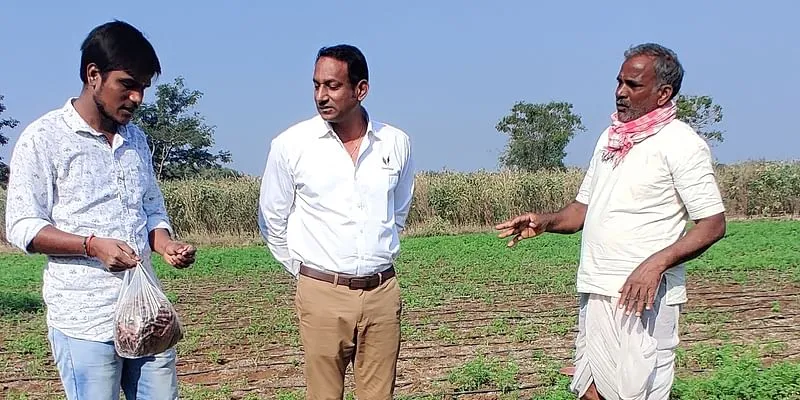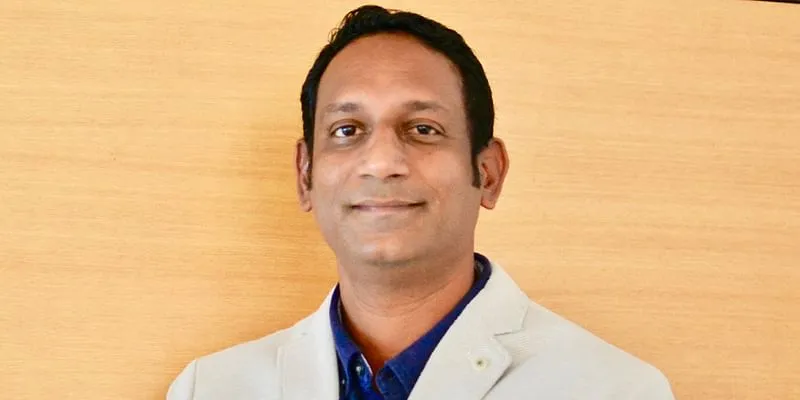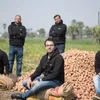This Hyderabad-based agritech startup enables farmers to directly reach consumers by standardising supply chains
OneBasket is a full-stack agritech startup that ensures the traceability and standardisation of agri-products like rice, dals, and pulses.
Serial entrepreneur Madhusudhan Reddy Salla realised that all developed countries were adopting newer cutting-edge technologies to modernise their agri supply chains, however, India, despite having the largest farming community in the world, was lagging behind.
He realised that there was a need for a solution, and that would come from technology. Madhusudhan had been a big believer in technology, having founded Aizyc Semiconductor in 2008 that licensed its intellectual property to Intel, Wolfson, Microchip, Broadcom, and many more. He later went on to start Klickh, a home automation product company that currently is an OEM to Schneider Electric.

He discussed India’s farming needs with an acquaintance, Narsi Reddy, Founder of Smarton India, and an IIT Kharagpur alum who comes from a farming family.
They realised that there isn’t any standardisation or traceability for agri products in the industry, leading to opportunity-driven trade and non-standard products flooding the market. Madhusudhan tells YourStory that farmers continuously struggle to get a good price as the crops are harvested within a month.
On the other hand, consumers want to eat safe and organic produce, however, they are entirely dependent on the labelling, with no guarantee about the authenticity of the produce. When they had started visiting the farmers in search of a solution, they saw them using WhatsApp and apps.
“It was evident that if technology was simplified enough farmers would gladly adopt it,” says Madhusudhan.
With Narsi as the core team member, Madhusudhan founded in 2019 in Hyderabad as a full-stack agritech startup.
What does it do?
Madhusudhan says,
“We came out with OneFarmer app that uses artificial intelligence and image-based traceability to ensure standardisation of agri products. Farmers can sell directly to customers, ensuring complete authenticity and traceability all the way – from the type of seed selected, to the milling process and storage conditions. Customers can see this information by scanning a simple QR code on the packaging. This enables customers to buy confidently and form a bond with the farmer.”
Every month, the startup provides consumers with multiple varieties of rice and dals from different regions using technology.
Madhusudhan says they started giving free samples to customers and have been able to build trust simply by letting them try the product and feel the difference themselves.
Their major challenge has been in educating the customers on the importance of eating healthy food, and communicating that they can get the same produce every month. While COVID-19 had created challenges during the initial days of the lockdown, but with the focus on essential delivery, the team says they saw an upswing.

Madhusudhan Reddy
The market and competition
An EY report states that the agritech market in India has the potential to reach $24 billion by 2025. According to the report, agritech companies had raised $532 million until April 2020. There are several startups in the same space like – , , , , , etc.
“Currently, we compete with premium branded groceries but the value addition we provide is far superior and at a very competitive price. We work on a revenue share model with the farmer, and operate on industry-standard margins,” says Madhusudhan.
The total size of the team is 14.
While the team refused to share the revenue sharing details, Madhusudhan says they have been doubling sales numbers every quarter and have clocked close to Rs 1.5 crore in revenue in the last fiscal year.
“The technologies we use are blockchain, artificial intelligence, image recognition, and geocoding. All these come together to predict yield, traceability, and product grading,” adds Madhusudhan.
Currently bootstrapped, OneBasket will soon be raising funds. It now aims to build an end-to-end integrated platform for farmers to market and sell their produce worldwide.
Edited by Kanishk Singh




![[Startup Bharat] How agritech platform Gramophone increased crop yield for 5L farmers in MP](https://images.yourstory.com/cs/2/dc9aa1302d6c11e9aa979329348d4c3e/WhatsAppImage2020-06-25at4-1593081675909.jpeg?fm=png&auto=format&h=100&w=100&crop=entropy&fit=crop)




